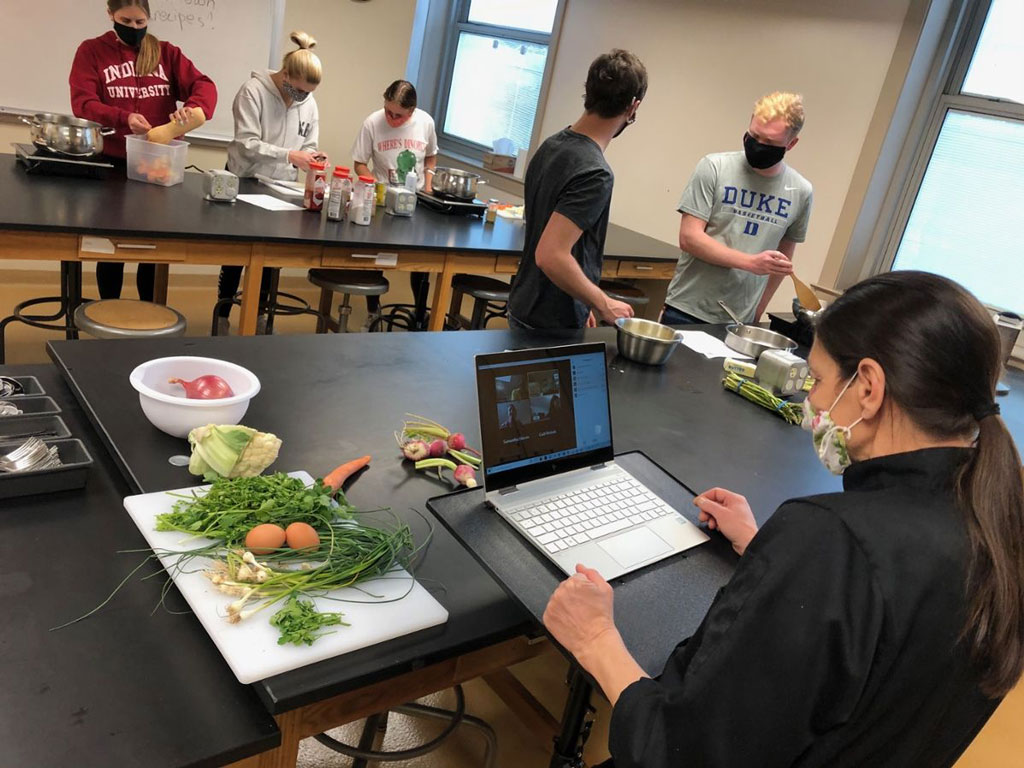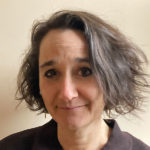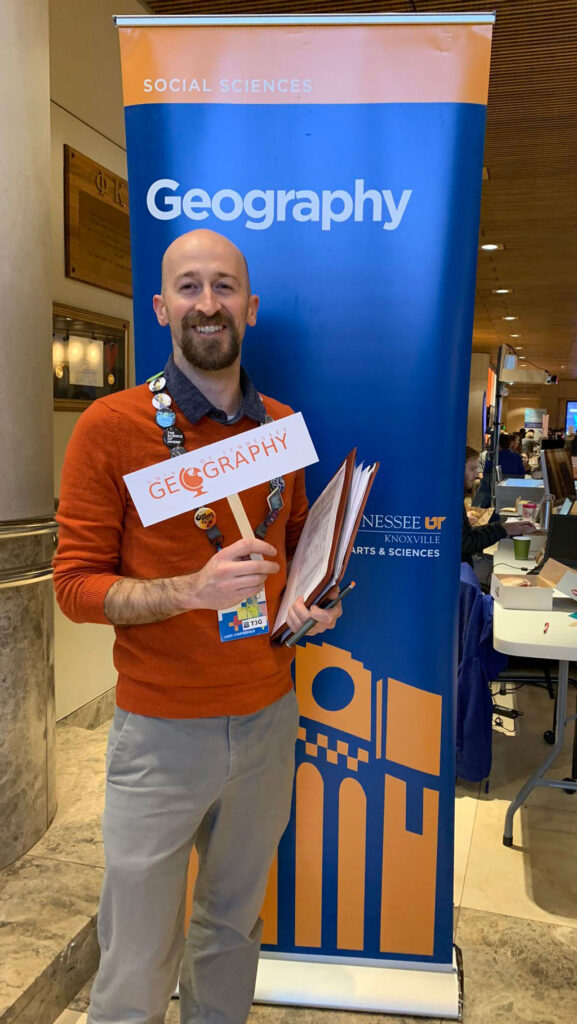By Mikelle Benfield
AAG Summer 2023 Intern, Annie Liu, sat down with Judith Keller to find out more about what it’s like to have a career as a geographer in academia. For Dr. Keller, this wasn’t even an initial consideration, but it’s become a fulfilling career path. Read more to learn how Dr. Keller has navigated (and is still navigating) academia as a professional geographer, from her inspirations to her current research, to her advice on whether or not to pursue a PhD.
How would you describe your current position and the primary responsibilities associated with it?
“I’m a postdoctoral researcher at the geography department at Heidelberg University and at the Heidelberg Center for American Studies, and I’m currently at the very beginning of my postdoc. I’m still figuring out this new role, but I can say that my main focus is on research and writing. I’m not obliged to teach, but I usually teach one class per semester because it’s just something that I enjoy doing. And then there’s always small things happening at the department and in our program where I’m involved in organizing different little events, where we invite guest speakers, things like that.
“I also do science communication every now and then. I’ve been in podcasts. I’ve published some work with The Conversation, which is an online news outlet for academics. And then here in Heidelberg we’ve also done tours on Urban Development for school kids and various groups. I’m also an editor with the Radical Housing Journal.”
Can you talk a little bit more about your research interests and what you’re researching in particular right now?
“I’m an urban geographer and my main focus is on housing and housing development. I’m particularly interested in looking at how people’s housing biographies influence their political biographies and tracing their ways into housing activism. That’s what I hope to do or focus more on during my postdoc: to have sort of a political ethnography of housing rights movements.”
When you say “biography,” what are you meaning by that?
“There is the term ‘housing biography,’ which is basically tracing people’s movements through time. At certain life stages, they’re more likely to live in certain housing situations than in others. Like, as a student, you might share an apartment. Later in life, you might settle down, invest in real estate, things like that. We can trace those movements. But there are also certain ruptures within that housing biography because of displacements, evictions, or foreclosures. I want to look at what happens when there is such a break. What does it do to people’s political biography and to their sense of home and belonging and ontological security?”
When you look back at your education trajectory, how did you discover geography and how did you realize it connected with your passions and goals?
“It definitely started with my dad. He used to be a big geography nerd without ever formally studying it. So, geography has been with me for most of my life and it has always been something that I enjoyed doing. But it took me quite a while to figure out that it was something you could pursue as a career.”
“I remember towards the end of my high school years when I was looking into what would I go on doing after, my mom was like, ‘So why don’t you major in geography?’ And I was like, ‘Well, that makes a lot of sense!’ And I know this sounds a bit cheesy now, but then I never looked back. And that’s how it all got started.”
“During my studies, I thought that I wanted to become a teacher. I never intended to stay in academia. And then one thing led to another. I became a research student in our department. And then while I was still trying to figure out what to do with all of it, I got offered a Ph.D. position. And that’s my way into professional geography.”
Talk more about the second part of that question, talking about aspirations.
“Even when I was in high school, we were taught that geography is always about creating sustainable futures: ecologically, economically, and socially. And all of my life I have been very concerned with issues of social justice. And then I realized I could become a professional geographer and make it part of my professional life. I can use my own interests and my talents best.”
“It’s something that I always treasure about geography: that it allows me to connect my concerns for social and spatial justice with my everyday work as a researcher and as a teacher here at the university.”
“Compared to other career paths, geography is always concerned with real life issues and is trying to produce real life solutions, especially in a field like Urban Development and housing. That’s why I rarely feel like I’m trapped within the ivory tower that is academia, because I always see my work as having real-life impact … beyond my professional life.”
How has your education in geography prepared you to be a researcher? What geographic knowledge do you think is important and useful to know for your research?
“I was a research student and that has been quite crucial because it gave me a very accurate picture of what academic life and research look like in the day-to-day. When I decided to stay in academia, I did so very intentionally. I knew the pros and cons of the job.”
“As a student, I was always able to take interdisciplinary courses so I could bridge all my various interests … I could look into how geography relates to cultural studies or to history. One of my favorite classes was called “Planning and Protest,” and it was taught by an urban geographer and a historian. It looked at how protest movements and riots influence urban planning in the U.S. I always think it’s so cool to learn about different disciplines and how researchers from different disciplines work and do their research because we all use different methods and frameworks.”
“I think what’s most important is that we teach students methods and a certain way of thinking through and with data. Learning about methodology has been most crucial for my career. And it’s not only about how to apply certain methods in the field, but also about critically reflecting on positionality and on ethical issues in the field.”
Are there any specific methodologies that are super important to your work, or specific theories and practices?
“I mostly do qualitative research. I’ve worked a lot with interviews and participatory observations. I think particularly participatory observations have had quite an impact on my work because most of my research takes place abroad. And so just being there, being in the field and being in this very specific and different setting has always informed my research outcomes. It’s exciting to go into the field and learn things that you could never learn when you’re just staying at home in front of your computer. It has certainly been foundational to my work.
Do you have a favorite part of your job?
“I really enjoyed the mix of research, writing, reading, and teaching. You always learn and process information in different ways and I often find that something that you might understand theoretically only makes sense when you put it into practice or when you go into the field. I really need this sort of mix.”
“More generally, I’d say that I love that within academia we have a very high degree of flexibility and independence. I treasure that I can work remotely whenever I want to or that I can have a late start into my day if I don’t feel well. I can just follow my energy flow and see where it takes me on certain days. I can travel a lot and explore new places, and I think that really makes it all worthwhile.”
What advice do you have for geography students and early career researchers?
“You really have to love academia in order to do it wholeheartedly. I see a lot of people who are not in a Ph.D. program or a postdoctoral program for the right reasons or who expected it to be something else, and then it makes them feel miserable. You have to be very intentional about your decision, or else it’s just going to be very stressful and exhausting. I truly believe that there’s so many wonderful jobs out there that you don’t have to bully yourself into doing a Ph.D. or pursuing a certain degree if it’s not for you.
“If you decide to do a Ph.D., my advice would be to always stay true to yourself.”
“It’s very hard not to get distracted by the long publication lists that you see in other people’s bios. You have so many people around you that work overtime all the time, and you feel like, ‘Oh, is that something I should do? Am I doing enough?’ It distracts you from focusing on yourself and your own path — and that should be enough.”
“Always take some time off. There’s a terrible tendency in academia to always keep going. But you have to take your weekends. You have to take your vacation days. Go to a yoga class, read a book, start a new hobby, and I’m almost certain that you will have more energy and be more productive than the person who is working 24/7.”
What were the deciding factors for you to keep pursuing academia?
“It’s really the mix of various things that we do in our day to day. I feel like every single day is different. I’m almost certain that I will never get bored in this job. Some days you’re teaching. The next day you might focus on reading and writing. Then sometimes you have periods that you spend in the field. You organize conferences or workshops. You meet new people and very interesting people too. And you always keep learning. That’s why it can never really get boring.”
Any final wisdom that you want to impart?
“It’s important to celebrate the things that we achieve throughout our career. If you had a great day, if you managed to publish a paper, if you just reached your personal goal of writing two pages today … enjoy the little things.”


 Michael is a big advocate of just going out there and talking to people! He recommends talking to people for those interested in any career ever. “The biggest thing is informational interviewing. Talk to people, find out what they do and find out if that’s a good fit for you.”
Michael is a big advocate of just going out there and talking to people! He recommends talking to people for those interested in any career ever. “The biggest thing is informational interviewing. Talk to people, find out what they do and find out if that’s a good fit for you.”